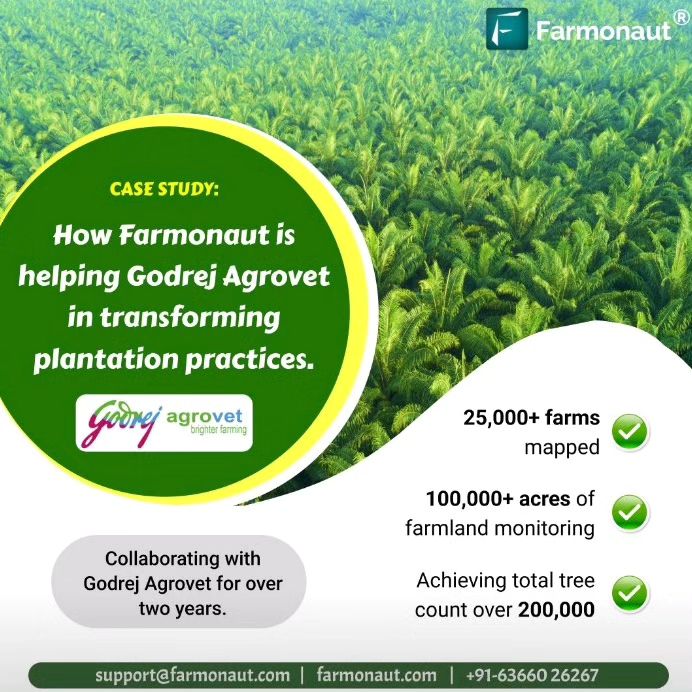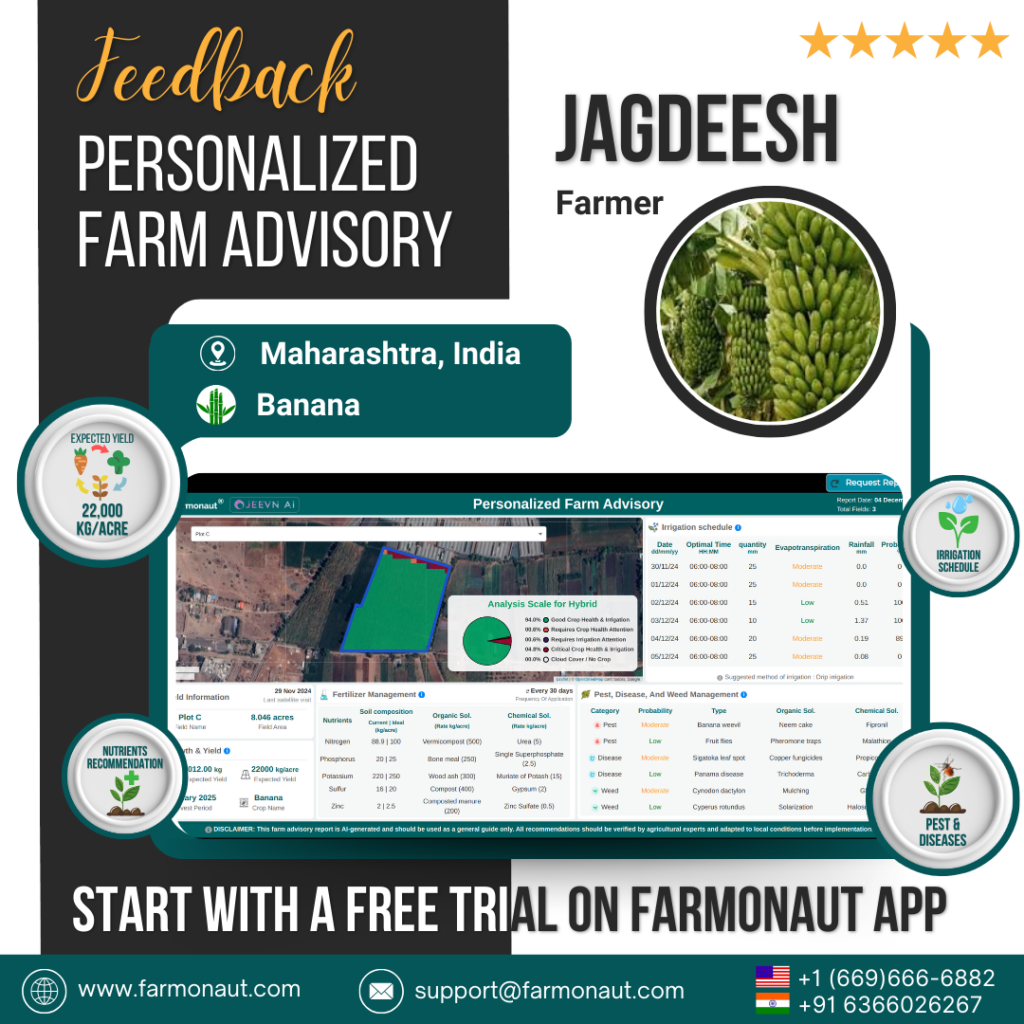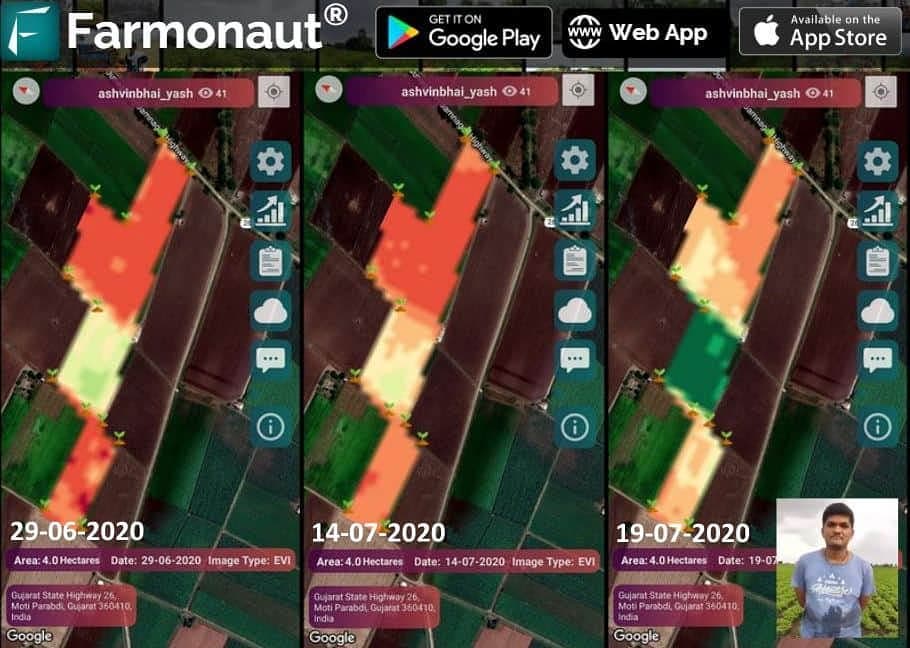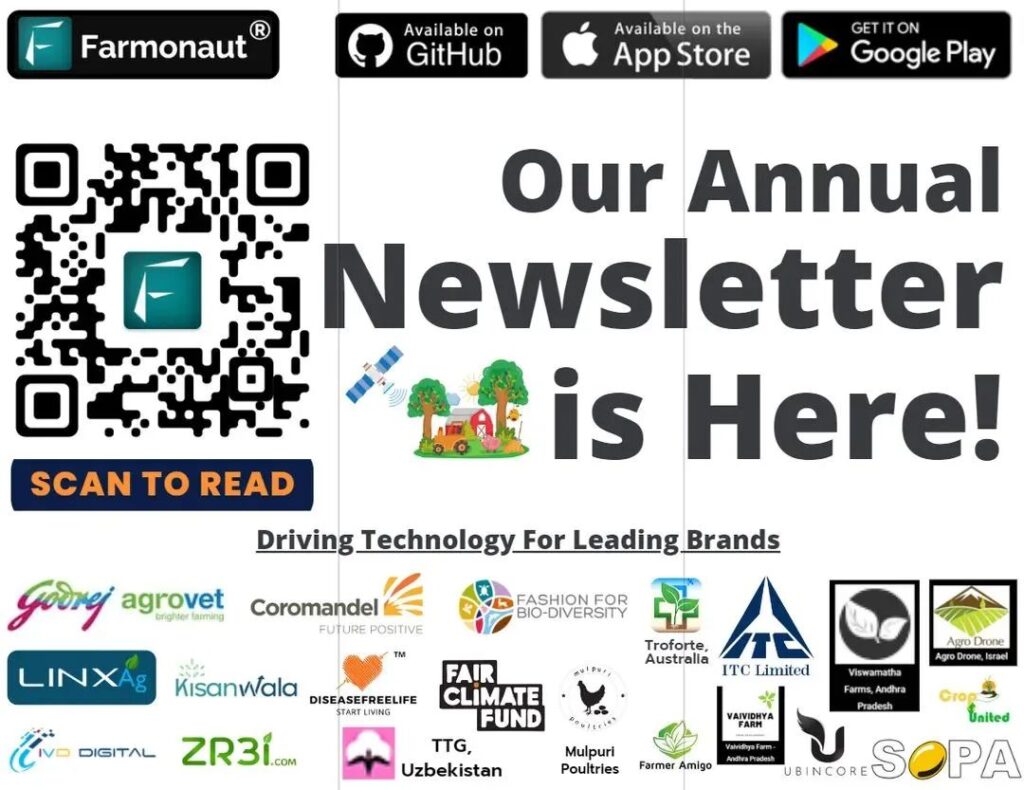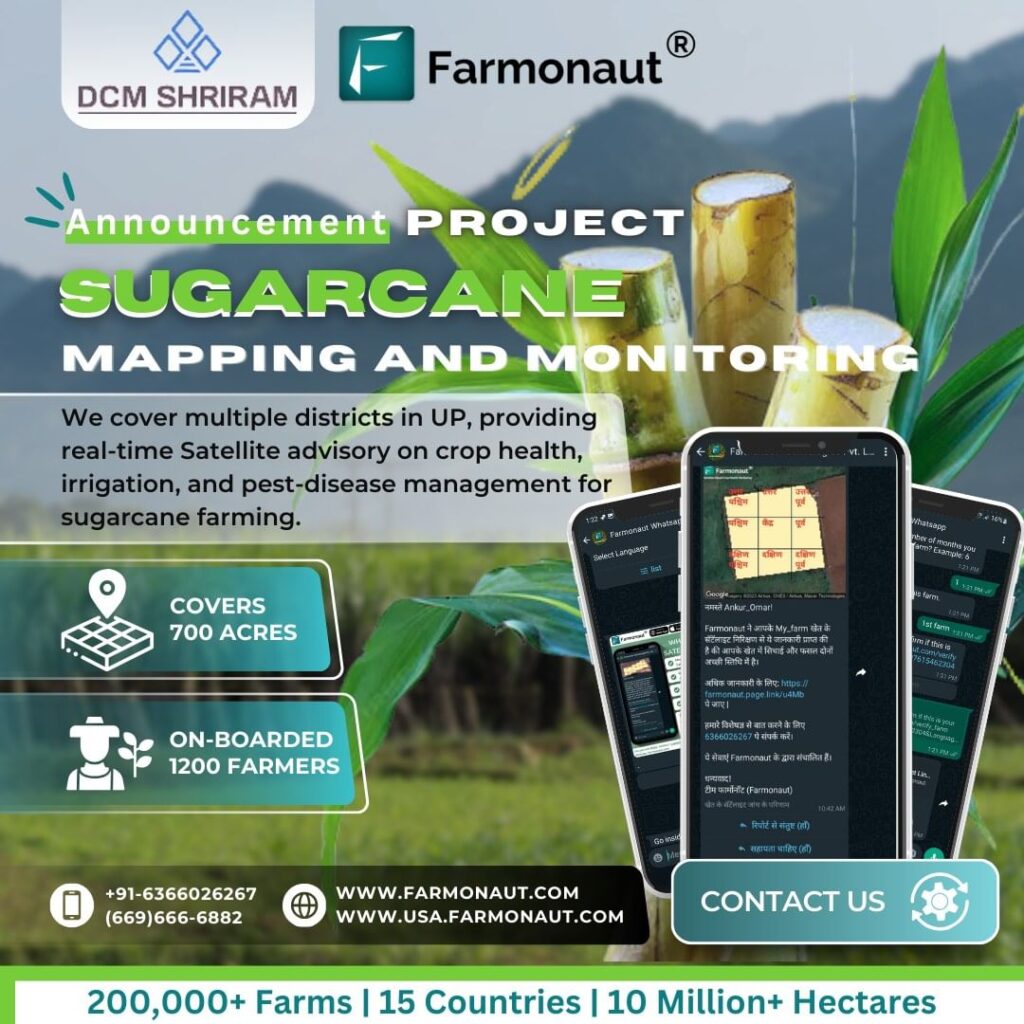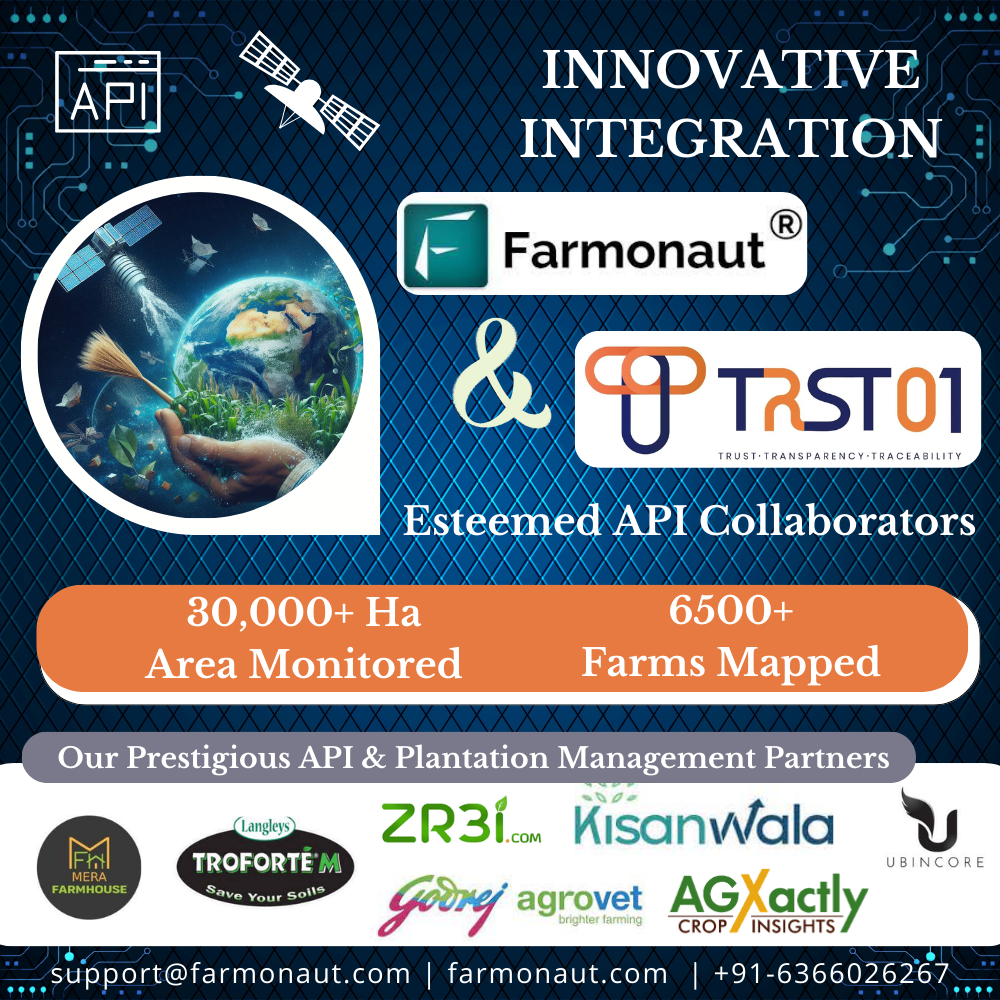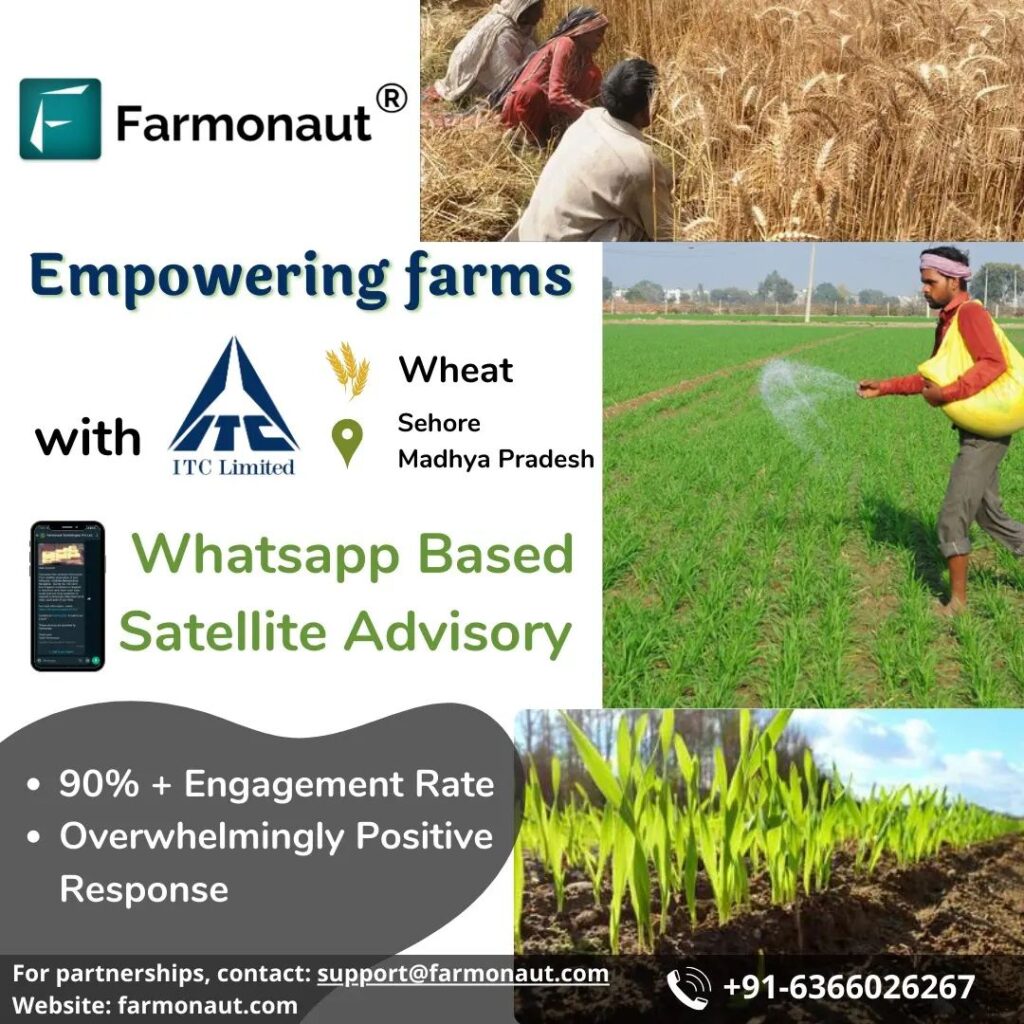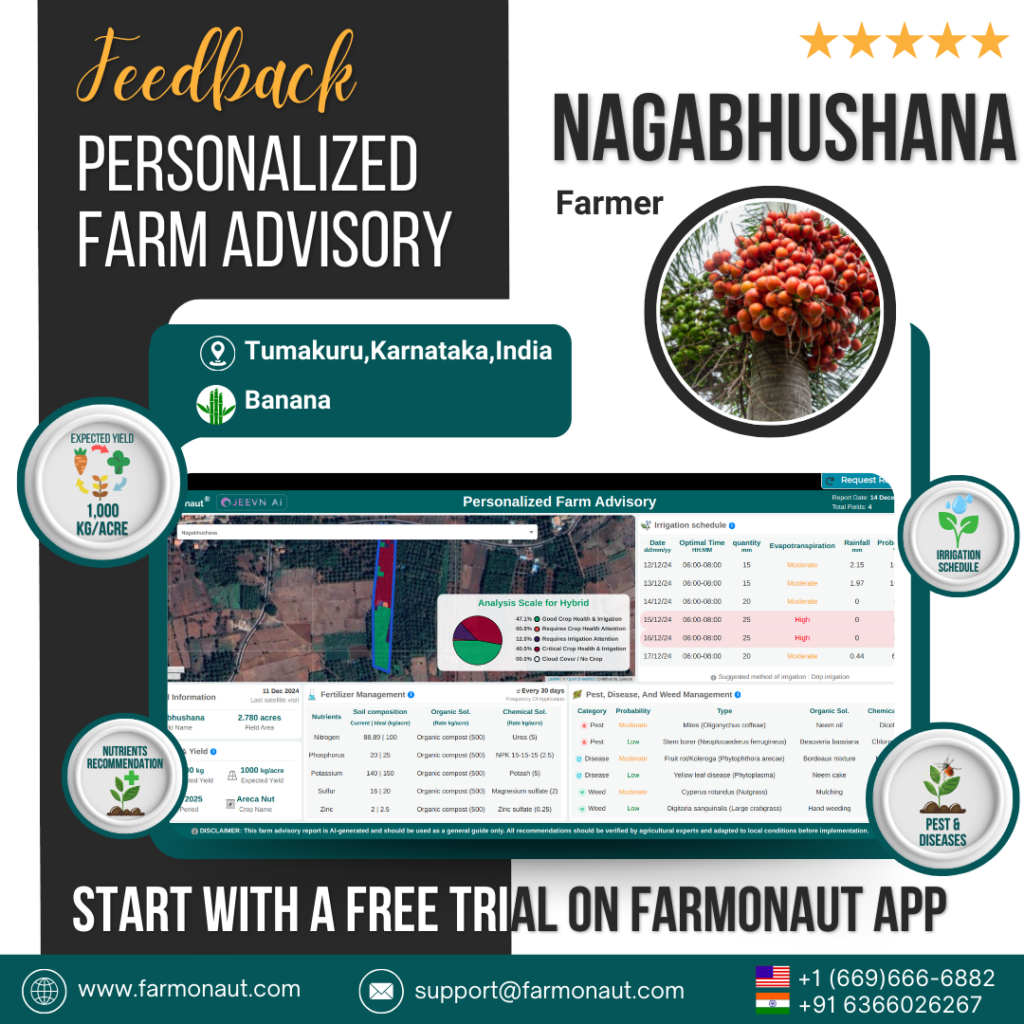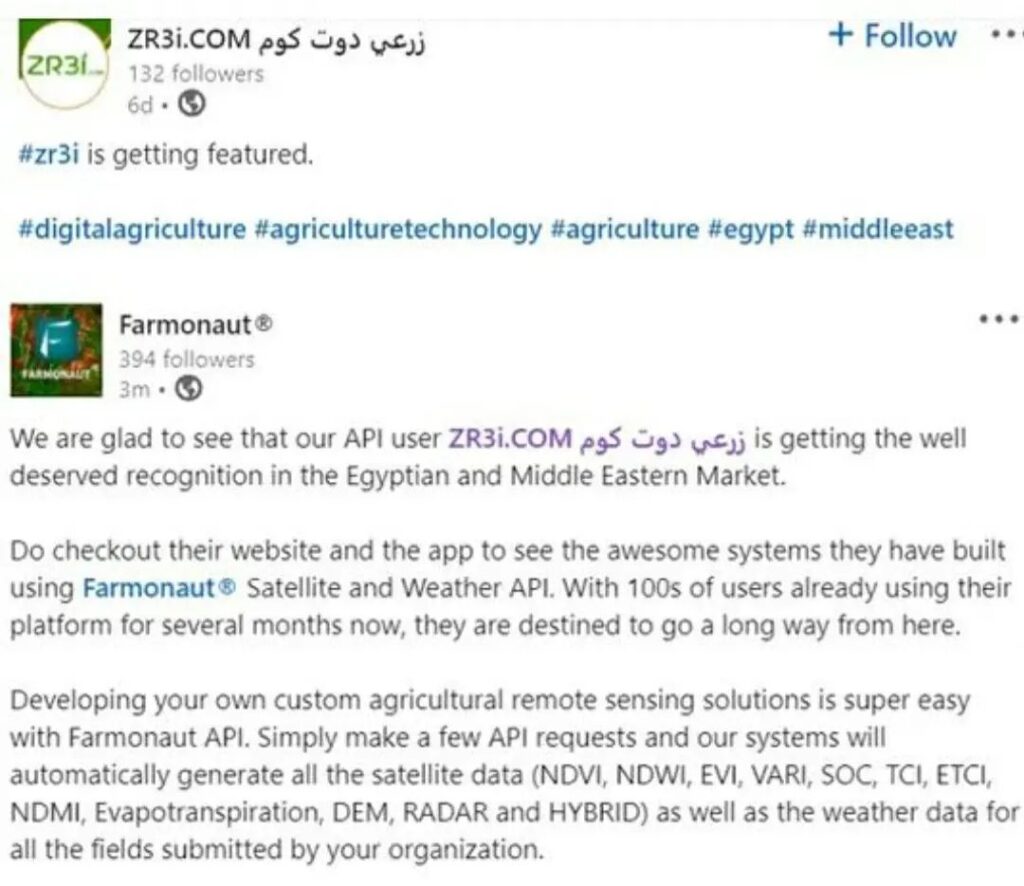Revolutionizing Agriculture: How Farmonaut’s Satellite Technology is Transforming Farming Practices

In the ever-evolving landscape of agriculture, technology has become a game-changer. At Farmonaut, we’re proud to be at the forefront of this agricultural revolution, providing innovative solutions that empower farmers and transform traditional farming practices. Today, we’d like to share the story of one of our prominent users, Mr. Ashok Shinde Ji, and explore how our satellite-based technologies are making a significant impact on the agriculture sector.
Meet Mr. Ashok Shinde Ji: A Farmonaut Success Story
Mr. Ashok Shinde Ji, a dedicated sugarcane farmer, has been utilizing our Farmonaut apps for the past six months to monitor several farms. His experience exemplifies the transformative power of our technology:
- He appreciates the depth of satellite data we provide
- Finds great value in our actionable insights
- Consistently checks our reports and platform, regardless of the time
- Relies on our daily weather data to stay informed about potential weather changes
Mr. Shinde’s enthusiasm for our technology demonstrates how remote sensing, when used effectively, can truly revolutionize the agriculture sector.
The Power of Satellite Data in Agriculture
At Farmonaut, we harness the power of satellite technology to provide farmers with invaluable insights. Here’s how our satellite data is helping farmers like Mr. Shinde optimize their agricultural practices:
- Reduced Chemical/Fertilizer Consumption: Our technology allows farmers to apply chemicals and fertilizers only in areas where crop health is suboptimal, leading to more efficient use of resources.
- Lower Labor Costs: By identifying critical areas in the field, farmers can direct ground staff more efficiently, focusing efforts where they’re most needed.
- Optimized Irrigation: Our system helps reduce irrigation water wastage by enabling precise application of water only in areas where plant water stress is low.
- Increased Yield: The combination of these optimizations leads to overall increased crop yields.
- Improved Soil Health: Our SOC (Soil Organic Carbon) model identifies areas with low organic carbon, allowing farmers to take corrective measures and maintain good nutrient composition post-harvest.
The Farmonaut Advantage: Satellite System vs. Drone and IoT-based Monitoring
While various technologies exist for farm monitoring, our satellite-based system offers unique advantages. Here’s a comparison:
| Feature |
Farmonaut Satellite System |
Drone-based Monitoring |
IoT-based Monitoring |
| Coverage Area |
Extensive (Global) |
Limited (Local) |
Limited (Local) |
| Frequency of Data |
Regular (3-5 days) |
As per the flight schedule |
Continuous |
| Initial Setup Cost |
Low |
High |
High |
| Maintenance |
Minimal |
Regular |
Regular |
| Scalability |
Highly Scalable |
Limited Scalability |
Moderate Scalability |
| Weather Dependency |
Low |
High |
Low |
Farmonaut’s Comprehensive Suite of Technologies
At Farmonaut, we’re not just about satellite imagery. We offer a comprehensive suite of technologies designed to revolutionize farming practices:
1. Satellite-Based Crop Health Monitoring
Our advanced satellite technology provides farmers with crucial insights into their crops’ health. We use multispectral satellite images to monitor various aspects of crop health, including:
- Vegetation health (NDVI)
- Soil moisture levels
- Other critical metrics
This data empowers farmers to make informed decisions about irrigation, fertilizer usage, and pest management, ultimately leading to optimized crop yields and reduced resource wastage.
2. Jeevn AI Advisory System
Our AI-driven personalized farm advisory tool, Jeevn AI, is a game-changer in precision agriculture. It provides:
- Real-time insights
- Weather forecasts
- Expert crop management strategies
By analyzing satellite data and other inputs, Jeevn AI generates customized advice that significantly improves farm productivity and efficiency.
3. Blockchain-Based Product Traceability
We’ve integrated blockchain technology to enable robust traceability solutions, particularly beneficial for the agriculture industry. This technology ensures:
- Transparency at every stage of the product’s journey from farm to consumer
- Enhanced trust in supply chains
- Reduced fraud
4. Fleet and Resource Management
Our platform includes advanced tools for fleet management, enabling agribusinesses to:
- Reduce operational costs
- Optimize vehicle usage
- Ensure safety
- Improve overall management of agricultural machinery
5. Carbon Footprinting
In response to growing environmental concerns, we offer carbon footprint tracking for agribusinesses. This feature:
- Provides real-time data on emissions
- Allows businesses to take steps towards sustainability
- Helps in compliance with environmental regulations
The Importance of Soil Nutrients and Organic Carbon
At Farmonaut, we understand the critical role that soil health plays in agricultural productivity. Our technology places a strong emphasis on monitoring and maintaining optimal soil conditions, particularly focusing on soil nutrients and organic carbon content.
Why Soil Nutrients Matter
Soil nutrients are essential for plant growth and development. They provide the necessary elements for various physiological processes within plants. The main nutrients include:
- Macronutrients: Nitrogen (N), Phosphorus (P), Potassium (K)
- Secondary nutrients: Calcium (Ca), Magnesium (Mg), Sulfur (S)
- Micronutrients: Iron (Fe), Manganese (Mn), Boron (B), and others
Our satellite technology helps farmers monitor the health of their crops, which can be indicative of nutrient deficiencies. By identifying areas of poor crop health, farmers can take targeted action to address nutrient imbalances, leading to more efficient use of fertilizers and improved crop yields.
The Role of Organic Carbon in Soil
Organic carbon in soil, often referred to as soil organic matter, is crucial for several reasons:
- Improves soil structure and water retention
- Enhances nutrient availability and cycling
- Supports beneficial soil microorganisms
- Increases soil fertility and productivity
- Contributes to carbon sequestration, helping mitigate climate change
Our SOC (Soil Organic Carbon) model helps farmers identify areas where organic carbon levels are low. This information is vital for maintaining soil health and ensuring long-term agricultural sustainability.
Organic Carbon in Soil in Hindi (मिट्टी में जैविक कार्बन का महत्व)
For our Hindi-speaking users, here’s a brief explanation of the importance of organic carbon in soil:
मिट्टी में जैविक कार्बन का होना बहुत महत्वपूर्ण है। यह मिट्टी की उर्वरता बढ़ाता है, पानी धारण करने की क्षमता को बेहतर बनाता है, और पोषक तत्वों की उपलब्धता में सुधार करता है। इससे फसल की पैदावार बढ़ती है और मिट्टी की समग्र स्वास्थ्य में सुधार होता है। फारमोनॉट की तकनीक किसानों को उन क्षेत्रों की पहचान करने में मदद करती है जहां जैविक कार्बन का स्तर कम है, ताकि वे सुधारात्मक कदम उठा सकें।
Optimizing Resource Use: Reducing Chemical Fertilizer Consumption and Water Wastage
One of the key benefits of our satellite-based technology is its ability to help farmers optimize their use of resources, particularly in terms of chemical fertilizers and irrigation water.
Reduce Chemical Fertilizer Consumption
Excessive use of chemical fertilizers can lead to environmental issues and unnecessary expenses. Our technology helps farmers reduce chemical fertilizer consumption by:
- Identifying specific areas where crop health is poor
- Enabling targeted application of fertilizers only where needed
- Providing insights into soil nutrient levels
- Suggesting optimal fertilizer application rates
By using our satellite data, farmers can make more informed decisions about fertilizer application, leading to cost savings and reduced environmental impact.
Reduce Irrigation Water Wastage
Water is a precious resource, and efficient irrigation is crucial for sustainable agriculture. Our technology helps
reduce irrigation water wastage through:
- Monitoring soil moisture levels across the field
- Identifying areas of water stress in crops
- Providing recommendations for targeted irrigation
- Offering weather forecasts to help plan irrigation schedules
By applying water only where and when it’s needed, farmers can significantly reduce water wastage while ensuring optimal crop growth.
Sensors to Monitor Crop Health: Complementing Satellite Technology
While our satellite-based system forms the core of our crop monitoring solution, we also recognize the value of ground-based
sensors to monitor crop health. These sensors can provide complementary data to enhance the accuracy and depth of our insights.
Types of Crop Health Sensors
- Soil Moisture Sensors: Measure water content in the soil
- NPK Sensors: Monitor levels of Nitrogen, Phosphorus, and Potassium in the soil
- Leaf Sensors: Measure leaf temperature and moisture content
- Weather Stations: Provide localized weather data
While these sensors can provide valuable data, it’s important to note that they require installation and maintenance, which can be costly and labor-intensive compared to our satellite-based system. However, for farmers looking for hyper-local, real-time data, a combination of satellite technology and ground-based sensors can provide the most comprehensive insights.
How to Get Started with Farmonaut
Ready to revolutionize your farming practices with Farmonaut? Here’s how you can get started:
- Download our app:
- Access our web platform: Farmonaut Web Platform
- Explore our API for developers: Farmonaut API
- Check out our API documentation: API Documentation
For any questions or partnership inquiries, please don’t hesitate to contact us at support@farmonaut.com or +91-6366026267.
Frequently Asked Questions (FAQ)
Q: How often is the satellite data updated?
A: Our satellite data is typically updated every 3-5 days, depending on the specific location and weather conditions.
Q: Is Farmonaut suitable for small-scale farmers?
A: Absolutely! Farmonaut is designed to be accessible and affordable for farmers of all scales, from small-scale operations to large agribusinesses.
Q: Does Farmonaut work for all types of crops?
A: While Farmonaut is effective for a wide range of crops, its effectiveness can vary depending on the specific crop and growing conditions. We’re continuously expanding our capabilities to cover more crop types.
Q: How accurate is the weather data provided by Farmonaut?
A: Our weather data is sourced from reliable meteorological services and is generally highly accurate. However, as with all weather forecasts, there can be variations, especially in regions with complex microclimates.
Q: Can Farmonaut help with pest management?
A: While Farmonaut doesn’t directly detect pests, our crop health monitoring can help identify areas of stress in crops, which may be indicative of pest problems. This allows farmers to investigate and take action more quickly.
Q: Is my farm data secure with Farmonaut?
A: Yes, we take data security very seriously. All farm data is encrypted and stored securely, and we never share individual farm data without explicit permission.
Conclusion
At Farmonaut, we’re committed to revolutionizing agriculture through innovative technology. Our satellite-based solutions, complemented by AI and blockchain technologies, are helping farmers like Mr. Ashok Shinde Ji optimize their operations, reduce resource wastage, and increase yields. By making precision agriculture accessible and affordable, we’re not just transforming individual farms – we’re contributing to a more sustainable and productive agricultural sector worldwide.
Join us in this agricultural revolution. Whether you’re a small-scale farmer, a large agribusiness, or somewhere in between, Farmonaut has the tools and insights you need to take your farming practices to the next level. Together, we can build a more efficient, sustainable, and prosperous future for agriculture.
Remember, the future of farming is here – and it’s powered by Farmonaut!
 In the ever-evolving landscape of agriculture, technology has become a game-changer. At Farmonaut, we’re proud to be at the forefront of this agricultural revolution, providing innovative solutions that empower farmers and transform traditional farming practices. Today, we’d like to share the story of one of our prominent users, Mr. Ashok Shinde Ji, and explore how our satellite-based technologies are making a significant impact on the agriculture sector.
In the ever-evolving landscape of agriculture, technology has become a game-changer. At Farmonaut, we’re proud to be at the forefront of this agricultural revolution, providing innovative solutions that empower farmers and transform traditional farming practices. Today, we’d like to share the story of one of our prominent users, Mr. Ashok Shinde Ji, and explore how our satellite-based technologies are making a significant impact on the agriculture sector.


